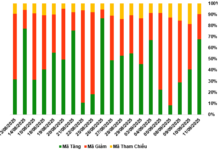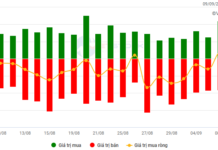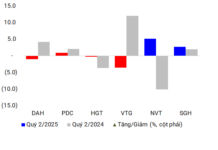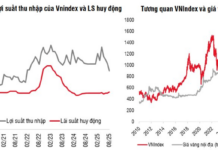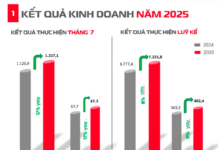Today, August 1st, Dan Viet Newspaper hosted a panel discussion titled “New Opportunities in the Real Estate Market.” The event coincided with the enforcement of three crucial laws directly impacting the real estate market: the 2024 Land Law, the 2023 Housing Law, and the 2023 Real Estate Business Law.

The panel discussion, “New Opportunities in the Real Estate Market,” was organized by the Rural Newspaper/Electronic Dan Viet.
In recent years, as the real estate market showed signs of stagnation, with limited new product supply, rising land prices, reduced capital inflow, and slow liquidity, experts agreed that approximately 70% of the market’s challenges stemmed from legal issues and 30% from capital difficulties.
Many projects faced obstacles in fulfilling their financial obligations. Elaborating on this issue, Mr. Dao Trung Chinh, Director of the Planning and Land Development Department of the Ministry of Natural Resources and Environment, explained that some projects followed the law enacted in 1993 rather than the 2013 version. Even with the 2013 Law, many localities failed to implement it effectively, leading to numerous violations in land valuation, creating a fear of making mistakes.
Firstly, the 2024 Land Law addresses issues arising from governmental mechanisms, not developers. Secondly, the Law clearly distinguishes between cases where the state revokes and where enterprises must act independently. Thirdly, it introduces transparency regarding auction, bidding, and self-implementation procedures.
Additionally, the Law covers business operations, land service exploitation, and project transfers. It also provides guidance on how overseas Vietnamese citizens can purchase property and addresses project transfers involving domestic and foreign investors.
With the early enforcement of these three laws, Mr. Chinh expects to resolve the current challenges in the real estate market, particularly in land valuation and financial obligations.
However, Mr. Le Van Binh, Deputy Director of the Land Department of the Ministry of Natural Resources and Environment, offered a different perspective. He attributed most project delays to procedural errors rather than legal obstacles.
Despite legal provisions, many projects fail to follow the proper sequence, leading to frequent mistakes. Previously, the valuation timing was determined by the land lease decision, but there was no deadline for issuing the land price decision, causing delays. The 2024 Land Law has addressed this issue by introducing valuation flexibility.
The early implementation of these three laws, five months ahead of schedule, is advantageous for the real estate sector. It enhances transparency in land access for real estate investors, providing clear mechanisms and streamlining legal procedures for investors and residents.
Of course, the Laws primarily address land valuation and compensation for resettlement. While previous regulations specified concrete prices, they often fell short of market values. The new Laws still use concrete prices but gradually move towards market-based values, ensuring better compensation for those whose land is expropriated. Furthermore, different types of land are now more explicitly defined.
New law enacted, does Condotel have a “status”?
After experiencing numerous ups and downs in the market, the condotel segment seems to still lack a clear “identity” with the passing of the Real Estate Business Law 2023 and the Land Law 2024.
Legal framework for condotel transactions
The condominium hotel (condotel) market, as well as the tourism real estate market in general, has not been regulated under the 2014 Real Estate Business Law. As a result, the ongoing obstacles of this type of real estate are expected to be resolved after the passing of the 2023 Real Estate Business Law. From a legal perspective, what are the positive aspects of the new law that investors need to be aware of in order to protect their rights and interests in transactions?
Quick evaluation report on the impact of Land Law amendment (2024) and some recommendations
The revised Land Law (2024) is considered a crucial legal project by the team led by Dr. Can Van Luc and the authors from BIDV Training and Research Institute. It covers various aspects of political, socio-economic, cultural, defense, and security domains, and it affects most economic entities. The team of experts has identified 10 new points that will have an impact on citizens, businesses, and the economy.



